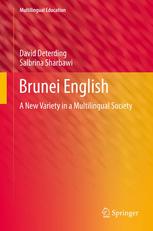

Most ebook files are in PDF format, so you can easily read them using various software such as Foxit Reader or directly on the Google Chrome browser.
Some ebook files are released by publishers in other formats such as .awz, .mobi, .epub, .fb2, etc. You may need to install specific software to read these formats on mobile/PC, such as Calibre.
Please read the tutorial at this link: https://ebookbell.com/faq
We offer FREE conversion to the popular formats you request; however, this may take some time. Therefore, right after payment, please email us, and we will try to provide the service as quickly as possible.
For some exceptional file formats or broken links (if any), please refrain from opening any disputes. Instead, email us first, and we will try to assist within a maximum of 6 hours.
EbookBell Team

4.3
98 reviewsThis detailed survey of Brunei English reflects the burgeoning academic interest in the many new varieties of English which are fast evolving around the world. Wholly up to date, the study is based on careful analysis of a substantial dataset that provides real-life examples of usage to illustrate the narrative throughout. As well as a thorough account of the pronunciation, grammar, vocabulary usage, and discourse patterns of Brunei English, the volume explores its historical and educational background and current developmental trends, providing an in-depth review of the patterns of English usage within this multilingual, oil-rich society on the north-western coast of Borneo. Written in a non-technical style throughout that will assist non-specialists wishing to grasp the fundamentals of this unique brand of the English language, the work is a worthy addition to Springer’s series on multilingual education that plugs a gap in the coverage of the numerous varieties of English being used across South East Asia. “The authors bring renewed and badly needed attention to the long-overlooked development of Brunei English. Their examination of the variety not only documents the features and functions of English within Brunei society, it also suggests the development of regional or global varieties of English that extend beyond Brunei, and even beyond South East Asia.” Andrew Moody, University of Macau